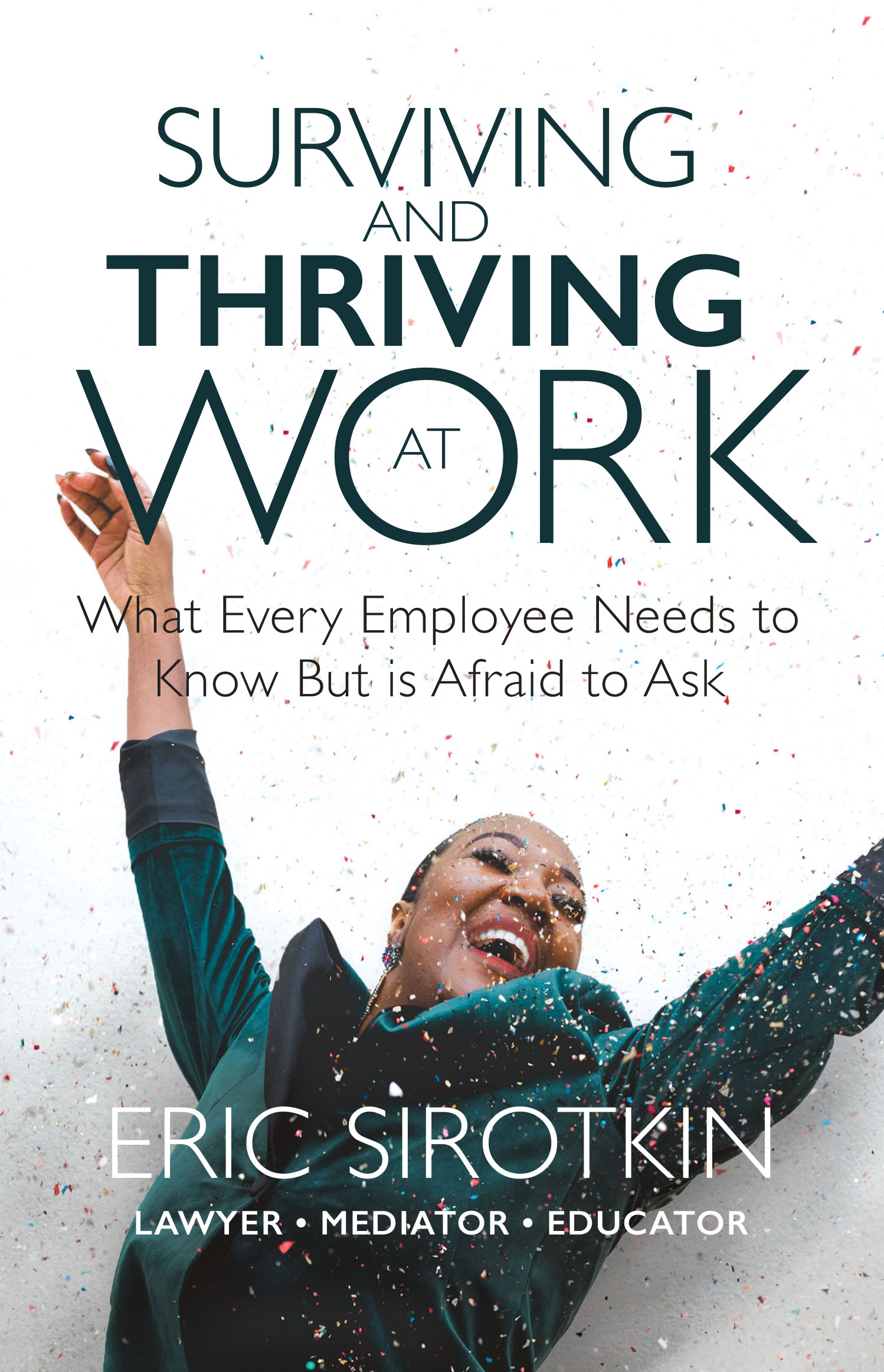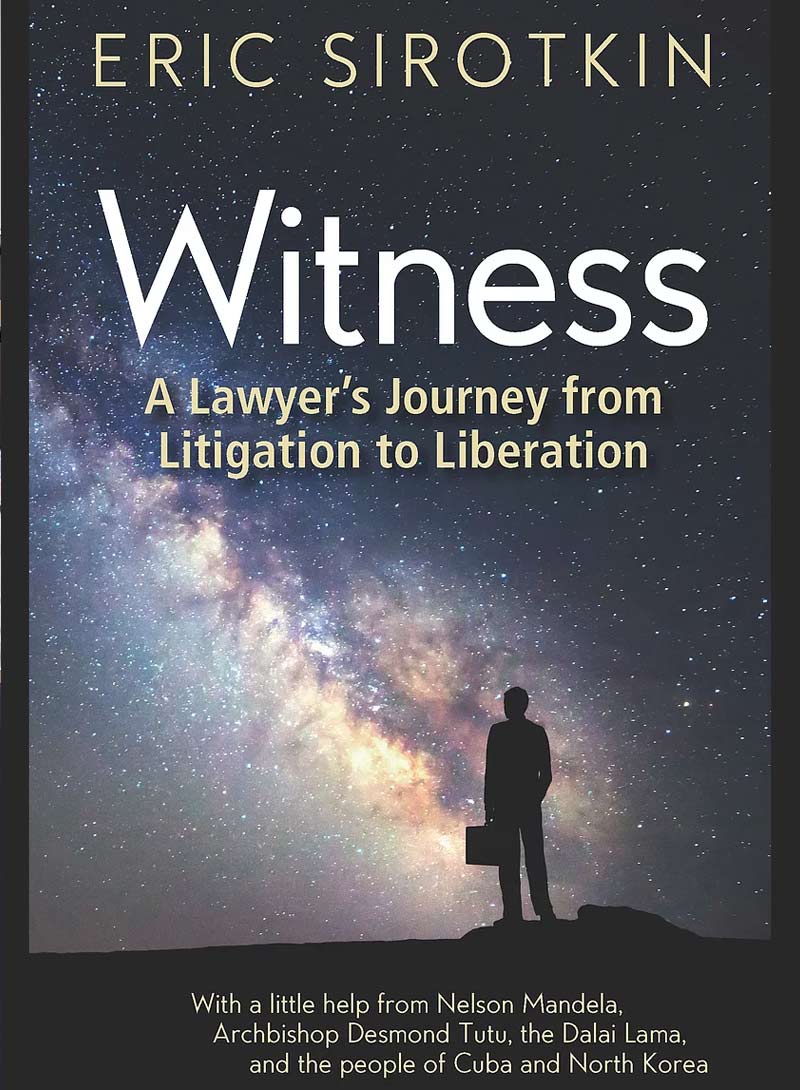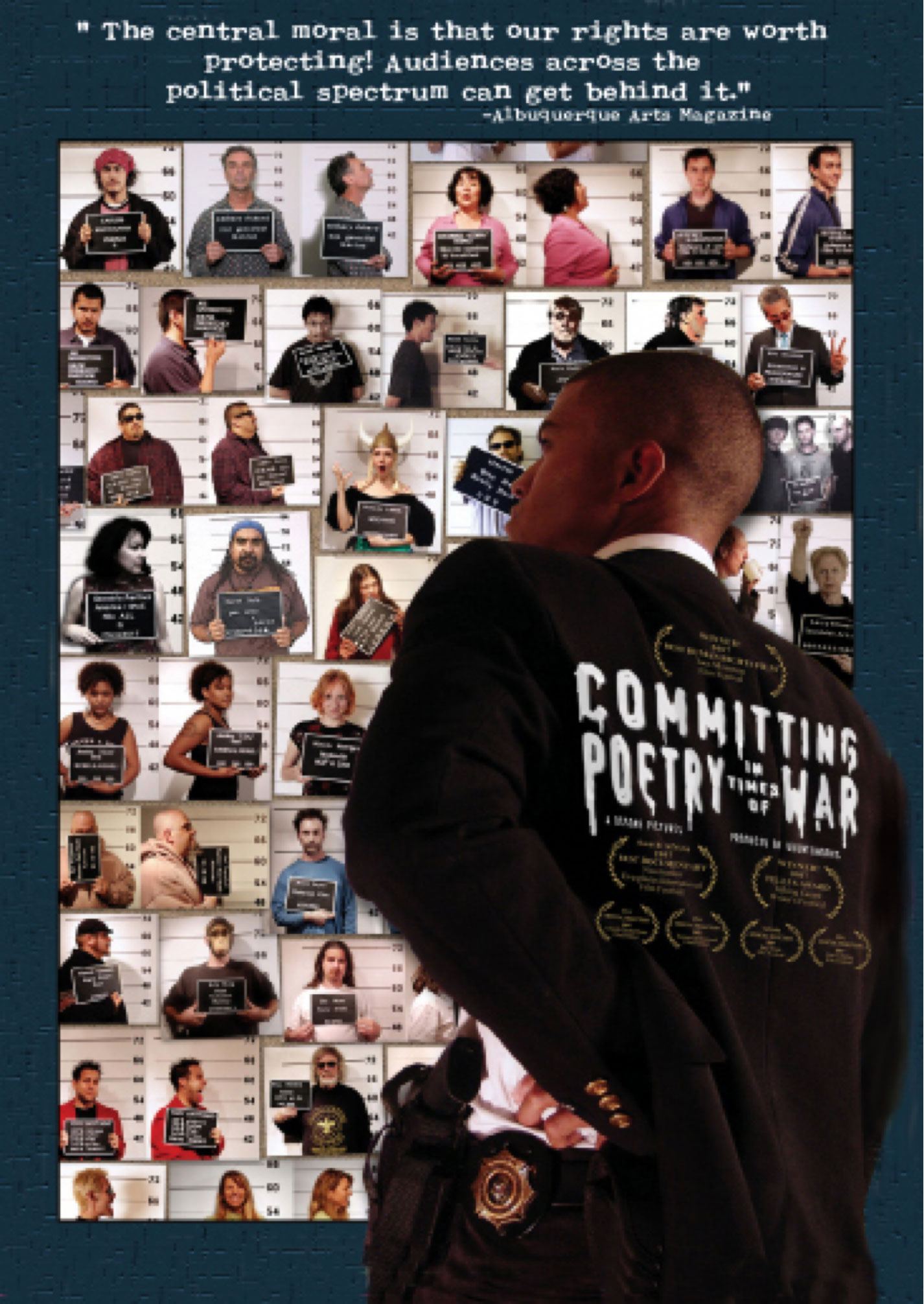Eric Sirotkin's
Books & FilmWitness: A lawyer's journey from litigation to liberation
Witness speaks to something innate in each of us: the desire to feel connected to those around us and live from our highest potential as human beings. This was brought home in Sirotkin’s first meeting with Archbishop Desmond Tutu in South Africa, while Sirotkin co-chaired the International Monitoring Project of the South Africa Truth and Reconciliation Commission. Tutu smiled as he told the author, “We are human through our relations with others. If I undermine your humanity, I dehumanize myself. This is ubuntu.”
As an activist litigator for social causes in America, Sirotkin engaged in the “good fight,” but felt something missing. Learning to actively live and work from ubuntu became a roar of awakening to a journey from litigation to liberation. Witness is filled with profound moments of compassion and quiet heroism from world famous activists and un-known women and men whose lives will inspire you to be the change the world needs, now more than ever.
See praise for witness under testimonals
Also available at your local bookseller

Surviving and Thriving at Work
What Every Employee Needs to Know But is Afraid To Ask
Filled with stories and advice, Surviving and Thriving at Work is a practical guide from Eric Sirotkin’s decades of counseling employees and litigating cases.
- Challenge Unfair Treatment
- Document Workplace Abuse
- Overcome a Demanding Boss
- Navigate the COVID Era
- Find Common Ground
- Live from a Place of Wellbeing
Protect and empower yourself by deepening your understanding of the modern workplace and developing creative skill sets to resolve and diffuse conflict. Become versed in your rights and learn key strategies on how to effectively assert them.
"Marching in the street and protesting is important, but it will be creativity that makes change." – Eric Sirotkin
Committing Poetry in Times of War, winner of the 2007 Poetry Film of the Year,* is a poetic glance at one week in March 2003, which rocked New Mexico, USA, and defined the struggle of a nation at war abroad and with its people. When the Iraq war began, Youth Poetry Slam Team Coach, Bill Nevins, was fired from his teaching job, and his outspoken Rio Rancho High School Poetry Team was disbanded and silenced. Days after Nevins’ removal, hundreds of peaceful protestors demonstrating nearby were brutally assaulted by police. Free Speech Zones were enforced at gunpoint. The fabric of the Constitution appeared to be crumbling. Yet out of this fire arose a diverse community of artisans, poets, and musicians. They came together in a series of unifying events, which began in Albuquerque, but spread across the country. Dubbed Poetic Justice, it defied the fear tactics of the day by modeling free speech and supporting Nevins’ quest for justice. The Poetic Justice voices are a testament to the power of the creative spirit within us all and present a path to transformation and hope in these troubling times.
*Telluride Talking Gourd Festival
If you’d like to purchase the DVD with the full text of all the poems in the film, contact Eric Sirotkin’s office at (505) 930-7223.
Q & A with Eric Sirotkin
What does it mean to be an active witness?
What is this ubuntu you talk about in the book and how did you discover it? What is the impact it has had on you?
Ubuntu, as Archbishop Tutu once told me, is the “essence of being human.” It is the understanding that we are connected, not separate and that everything we do impacts others and the world around us. I learned about it first in South Africa working with the Truth and Reconciliation Commission, where the statute said, “there shall be ubun-tu rather than victimization.” We all have a connected interest in our future. To divide the world between “us and them” or “victim and perpetrator” ignores a deeply held truth that exists in most non-dominant cultures around the world. As I experience in the stories in Witness, the discovery has changed the way I practice law and how I view the world. It has made me a more compassionate warrior for peace. But what stands out most is that it continually re-minds me that we are a hair’s breath away from great change. That it is just a changing of our angle of vision from a filter of separation to one of ubuntu that changes everything — our relationships and our very definition of success.
You write about several trips to North Korea? With tensions increasing, what do your experiences teach us about how to deal with this more than 70-year conflict?
You’re a unique lawyer who seems to have risen above the fray and approaches conflict differently. How do you do it in such an adversarial profession?
In Witness you describe some powerful experiences that emerge from almost spiritual experiences? How do those encounters impact your message?
You’ve been fortunate to travel the world, from Europe, to India, to Cuba and Asia. What about that activities impacted you as a human being or a lawyer?
It is hard to look into the eyes of children or play sports or games with your “enemy” without feeling a human connection that lies beyond the geo-political framework. There is more that unites us than separates us and we spend too long on our differences rather than celebrate our commonality. Connection actually makes war impos-sible. We cannot bomb those we have known and whose love of family, safety and joy is so universal. Most wars hap-pen with a deep depersonalization campaign.


